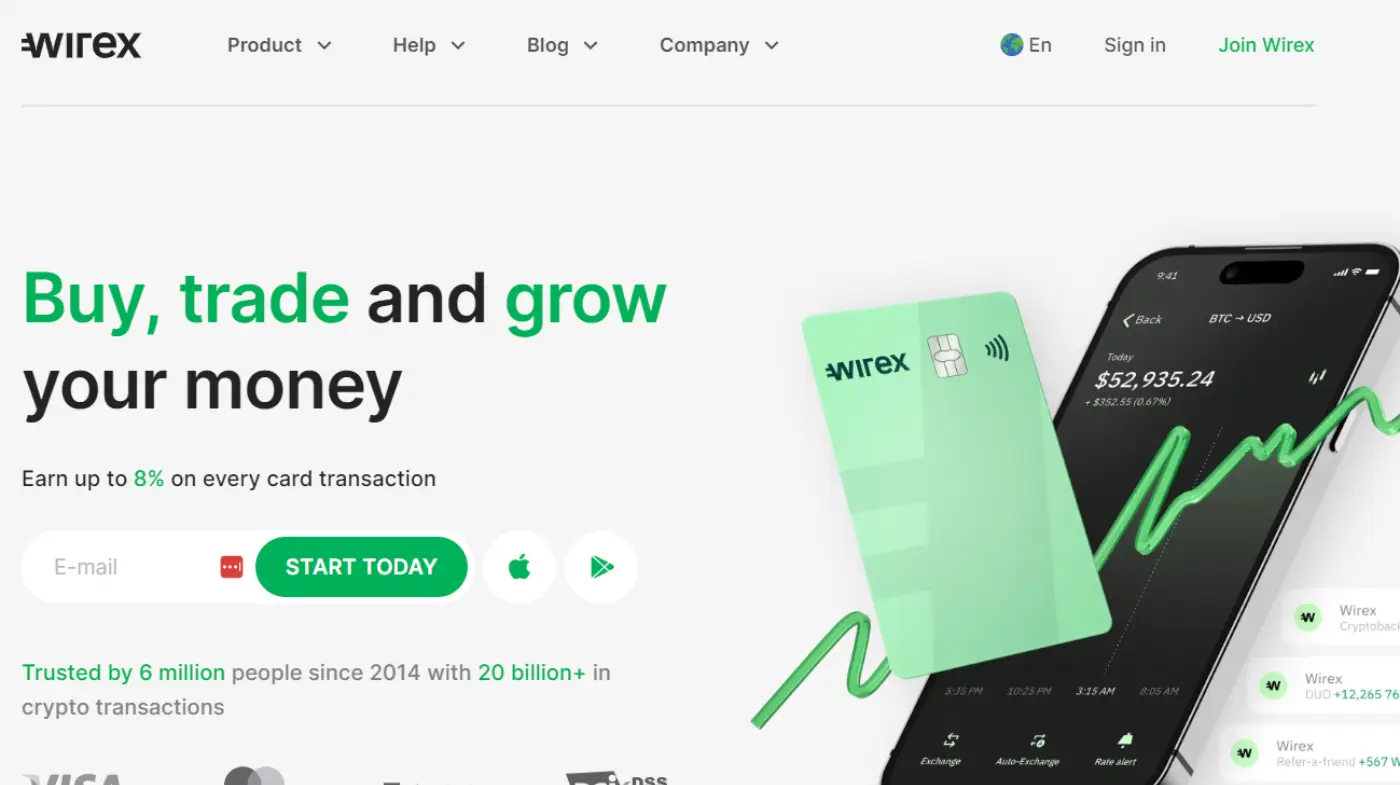Are you looking for crypto-friendly banks in 2024 that focus on facilitating crypto transactions? This article is for you.
Due to the unregulated and volatile nature of virtual currencies coupled with the perceived threat to fiat money, most traditional financial institutions, including conventional banks, around the world globe steer clear from cryptocurrencies.
Some of these banks not only avoid any crypto-related transactions in their banking system but also restrict accounts from engaging in such transactions, with an outright sanction on any account that deals with crypto.
Notwithstanding these concerns, some banks have decided to become crypto friendly. These bank for crypto open business accounts for crypto businesses and users.
These banks not only open bank accounts for cryptocurrency service providers and users but have also integrated with crypto payment processing services to handle payment settlements in the crypto market between businesses and consumers.
We understand that finding these fully licensed crypto banks can be challenging; that is why we have decided to help you by putting together the best crypto friendly banks in the world in 2024.
What Are Crypto-Friendly Banks?
Nowadays, cryptocurrency is being integrated into the traditional banks and financial system. This gives cryptocurrency more legitimacy as an investment-grade asset class and also increases crypto adoption for everyday use and global payments.
As more and more people adopt crypto, traditional banks are forced to adjust to the changing landscape to meet the needs of customers. This adjustment led to the birth of a new breed of traditional financial institutions called “crypto-friendly banks.”
In a nutshell, crypto banks are banking institutions that offer conventional financial services alongside innovative crypto-related services.
A crypto bank deals with fiat currencies and also guarantees safe custody, deposits, withdrawals, and trading features for digital assets.
These banks function as a bridge between the traditional financial system and digital assets, catering to the needs of individuals and businesses involved in crypto-related transactions.
They use strong cybersecurity measures to keep customers’ cryptos safe from theft or hacks. More so, they observe strict regulatory standards and employ Know Your Customer (KYC) processes to ensure a safe and compliant environment for their users.
It is important to note that though crypto-friendly banks facilitates crypto services, they do not necessarily mean crypto banks, which conducts transactions using blockchain. A crypto friendly bank can be any of the following:
- A traditional bank with a cryptocurrency license to offer services with both fiat and virtual currencies.
- A crypto bank with the full spectrum of crypto-related services.
- An online bank (digital bank) with a cryptocurrency license to offer only online business banking solutions with support for some crypto-related services.
- A FinTech platform, including apps, that offers seamless crypto transactions with a variety of cryptocurrencies.
Top Crypto-friendly Banks
Now, let us consider the banks that offer crypto-related services. This article highlights the top six banks that you can consider for your crypto-related financial businesses.
Ally Bank

Ally Bank is an online bank that offers specialized crypto accounts, and robust digital tools for effective financial and risk management. The bank does not directly offer services for crypto users but allows its users to use their bank accounts for transactions with external crypto exchanges.
The integration helps users to fund their crypto investments seamlessly and in real time.
Pros:
- The bank offers comprehensive and robust digital tools for effective financial asset management services.
- It supports transactions with external cryptocurrency exchanges
- It offers a transparent fee structure
- It offers competitive interest rates
Cons:
- The bank does not offer direct crypto trading services to crypto users.
- It partners with specific crypto exchanges
Revolut

Revolut is a crypto-friendly banks in the UK. Revolut is a traditional financial platform but offers cryptocurrency services for its over 40M customers.
The bank provides a crypto custodial service where customers can deposit and hold over 130 digital assets. More so, customers can easily buy and sell several digital currencies via the bank’s simple and user-friendly mobile app.
What more? The bank allows customers to transfer and receive their digital assets to and from external crypto wallets.
However, only some of these services are offered for free.
The Standard plan is offered for free but comes with limited services, the Plus plan costs £3.99 per month, the Premium costs £7.99 per month, the Metal costs £14.99 per month, and the Ultra plan costs £45 per month.
Customers on the Standard and Plus plans incur a 1.49% fee on their transactions, while customers on the Premium and Metal plans incur a 0.99% fee on transactions.
Pros:
- The bank offers full crypto services
- It supports over 129 digital tokens
- Its cryptocurrency holdings are kept in a cold storage for enhanced security
Cons:
- High transaction fees for customers on the Standard and Plus plan
- Customers may face limited ability to transfer digital assets to external wallets
- The bank does not offer insurance for investments
Juno

Juno also combines traditional banking services, such as wire transfers, with cryptocurrency services. The platform offers an instant on-ramp to 20+ blockchain networks and supports cryptocurrencies, such as BTC, ETH, LTC, DOGE, and SOL.
Juno also allows its users to buy, sell, and withdraw cryptocurrencies without holding periods.
Pros:
- The bank integrates fiat and crypto accounts.
- It allows selling and buying crypto.
- No holding period for cryptocurrency withdrawals
- Cashback rewards on debit card purchases
Cons:
- Limited availability in certain regions
- It does not offer crypto-backed loans
- No interest-earning options for BTC and ETH
Mercury

This is one of the best crypto-friendly banks out there for beginners and startups in the crypto industry. Unlike Revolut, Mercury does not offer crypto custodial services but enables anyone to open a free account with which they can easily purchase crypto assets without restrictions.
The free accounts do not even require a minimum balance or monthly fees.
Guess what? Mercury has crypto-friendly business policies and offers high FDIC insurance coverage of up to $5M, with attractive yields for balances of over $500,000.
All these perks make Mercury the best choice for crypto enthusiasts, exchanges, and digital asset firms.
Pros:
- Mercury does not charge monthly fees or require a minimum account balance
- It offers high FDIC insurance coverage
- It has crypto-friendly policies
Cons:
- It does not accept cash deposits
- Customer support is primarily via email
Cash App

Cash App is a mobile app that offers all-in-one financial services, such as fund sending, spending, investing, and banking. Cash App enables its users to buy, sell, and hold only Bitcoin (BTC).
Also, the app makes cryptos very accessible for newbies in the crypto community as they can easily invest as little as $1 in BTC via the app. Cash App is a custodial wallet that securely stores your private key.
However, Cash App charges a 1.76% fee for cryptocurrency purchases and an additional service fee per transaction.
Pros:
- The app has a user-friendly interface
- It offers Bitcoin accounts
- It offers instant money transfers
- Free debit card
Cons:
- It allows Bitcoin only
- It limits transactions for new users
- No FDIC insurance for crypto holdings
- Limited international availability
Wirex

Wirex is a digital payments platform that supports 125+ crypto assets, including BTC, ETH, ADA, LTC, DOGE, and SOL.
Wirex integrates with ten different cryptocurrency exchanges, including Coinbase, and three over-the-counter (OTC) institutions to facilitate secure, affordable, and seamless crypto trading pairs.
The platform does not charge a specific set fees for cryptocurrency trading. Instead, it applies varying spread fees.
Pros:
- It allows multi-currency support for both fiat and cryptocurrency
- It does not charge monthly fees
- Competitive exchange rates
Cons:
- It has limited crypto selection compared to other major exchanges
- It lacks advanced trading tools
While the above-listed banks are leading in the crypto world, other crypto banks include Bank Frick, Zürcher Kantonalbank, AMINA Bank (SEBA Bank), BankProv (also known as Provident Bank), Starling Bank, Bank of America, Quontic, Royal Bank of Scotland, Monzo, Standard Chartered, and JP Morgan Chase.
Conclusion
If you are looking to invest in cryptocurrencies, it is important to choose the best bank that will support your crypto investments. These banks bridge the gap between traditional banking services and the crypto space.
The banks we discussed above offer some specific services, including crypto services, that make them suitable for your transactions. However, you need to understand that banks for crypto do not offer all the cool stuff that Decentralized finance (DeFi) platforms offer.
Therefore, carry out institutional-grade research on crypto markets before you eventually settle down with any bank for cryptocurrency.
Frequently Asked Questions (FAQs)
What are crypto-friendly banks?
These are banks that offer fiat and digital currencies services, such as the sales, purchase, and storage of cryptocurrencies. Some crypto banks do not offer these services but allow users to buy and sell crypto using their accounts. All of the banks listed above are crypto friendly.
What are the limitations associated with bank for cryptocurrency?
Crypto assets can be very risky and volatile. So, crypto-friendly banks may charge higher for their products and services. Some banks may impose limits on cryptocurrency transactions, add a holding period for cryptocurrency withdrawals, or block some cryptos based on risk.
Do all crypto-friendly banks accept cryptocurrency?
No, not all crypto-friendly banks accept or offer crypto directly. Some only allow users to use their accounts to buy cryptocurrency from external exchanges. while some banks like Revolut offer complete crypto services.
What are the key considerations when choosing a crypto-friendly bank?
Not all crypto-friendly banks have all the requirements and credentials to offer safe crypto transactions. When choosing a crypto bank, consider their supported cryptocurrencies, licensing, and compliance with regulatory requirements. Some banks also allow users to earn passive income on their digital assets.










